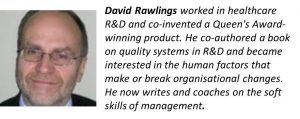Dave Rawlings says there’s merit in the idea that we want the brightest among us to be running things, but poses the question: do we really want the greedy in power?
I don’t know about you but I’m reluctant to let the old year go without feeling that at least some progress has been made. It’s hard to think of anything in society, politics or the economy that has got better during 2018. Far from establishing a firm base to push on from we seem to be sliding backwards.
One of the problems we’ve been commenting on for several years now is that of widening inequality.
The top 1 per cent don’t seem to have been hurt by austerity policies. If anything, it appears that most of the very rich have got even richer. The 99 per cent never expected to be very wealthy, but they did expect to be properly rewarded for their work and to succeed in building a secure and comfortable life. As even those modest aspirations have been frustrated, we’ve seen an outpouring of anger expressed in the United Kingdom against immigrants and benefits claimants.
To see poor people blaming other poor people for their lack of opportunity must give great comfort to the economic winners as it reinforces the view that life is a contest that is won by the most able, the most deserving, and that inequality is a fact of nature rather than an evil to be eradicated. Unequal outcomes aren’t down to good fortune or social connections but to effort and innate ability.
While Mayor of London, Boris Johnson made a speech in praise of Margaret Thatcher. He ranged widely but attracted a lot of attention with what began as remarks about global competition: “No one can ignore the harshness of that competition, or the inequality that it inevitably accentuates; and I am afraid that violent economic centrifuge is operating on human beings who are already very far from equal in raw ability, if not spiritual worth”.
He went on to talk about how IQ divides people and then, on individual competition, said: “I don’t believe that economic equality is possible; indeed, some measure of inequality is essential for the spirit of envy and keeping up with the Joneses that is, like greed, a valuable spur to economic activity”.
Now I’ll do what most commentators did and take these remarks out of context in order to make my own point!
There’s merit in the idea that we want the brightest among us to be running things, but do we really want the greedy in power? If you’re personally driven to accumulate material wealth then that’s OK with me as long as it’s achieved through providing superior goods and services. When it comes through a position of power, influence, political or economic monopoly, then it becomes a problem. Your wealth is a cost to everyone else.
‘I don’t believe that economic equality is possible; indeed, some measure of inequality is essential for the spirit of envy and keeping up with the Joneses that is, like greed, a valuable spur to economic activity.’ Boris Johnson
Johnson thinks inequality stems from differences in “raw ability” or intelligence. And it seems self-evident that, over and above the random distribution of “opportunity”, there are major differences in how people take their chances in life. Knowledge and ability must play a big part, but maybe even more important is the question of what you really want. In other words, your values.
How does this work? Doesn’t everyone want to progress their career, earn more money, have more status? Well, only up to a point, because with those payoffs come other things like responsibility, commitment, hard work and loss of privacy. Then there’s the effect on your relationships: if you make it big, others will be jealous.
If these things conflict with some of your more important values then you’ll probably sabotage yourself. Even if you know exactly what to do – to get the job or make a fortune – your unconscious mind will be busy thinking up reasons for not taking action. These leak through into your conscious awareness to justify your lack of enthusiasm. And once you’ve rationalised the decision to forego an opportunity, you don’t have to confront the fear that you felt.
I conclude from this that the biggest difference between those who gain vast wealth and those who don’t is that the former really want to be wealthy, more than anything else.
If you recognise this then you also recognise that the urge to accumulate is literally irresistible for some people. So, the wider question then is how can things be organised so that this drive doesn’t hurt everyone else. Maybe the answer isn’t redistribution as such, but rather a restructuring that directs acquisitive instincts into activities that truly benefit society and prevent anyone profiting from destructive behaviour.
Now there’s a New Year’s Resolution for our leaders. . .
Happy New Year!

 Email: david@changeworkcoaching.com
Email: david@changeworkcoaching.com


